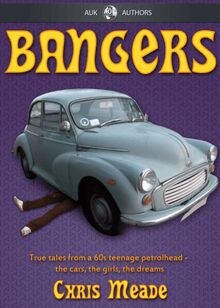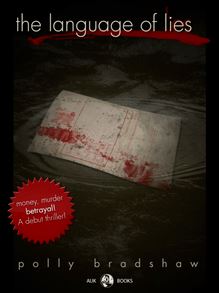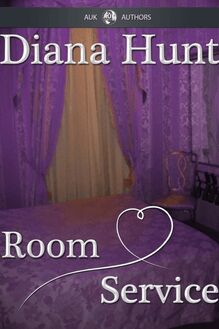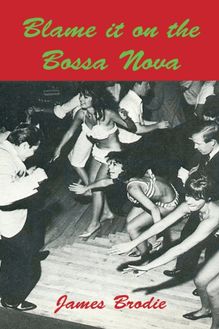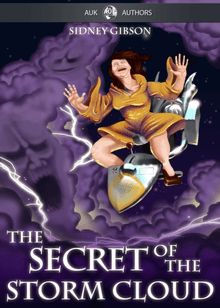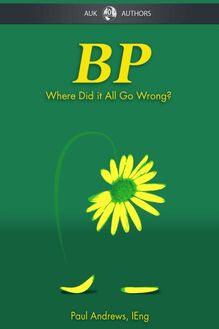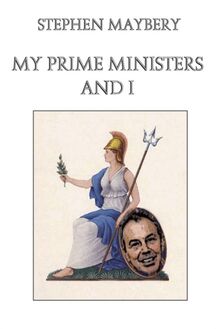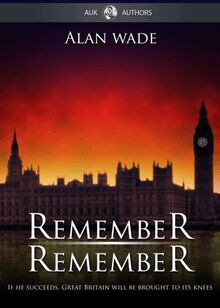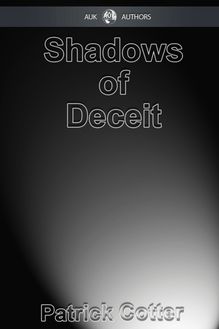-
 Univers
Univers
-
 Ebooks
Ebooks
-
 Livres audio
Livres audio
-
 Presse
Presse
-
 Podcasts
Podcasts
-
 BD
BD
-
 Documents
Documents
-
- Cours
- Révisions
- Ressources pédagogiques
- Sciences de l’éducation
- Manuels scolaires
- Langues
- Travaux de classe
- Annales de BEP
- Etudes supérieures
- Maternelle et primaire
- Fiches de lecture
- Orientation scolaire
- Méthodologie
- Corrigés de devoir
- Annales d’examens et concours
- Annales du bac
- Annales du brevet
- Rapports de stage
La lecture à portée de main
Vous pourrez modifier la taille du texte de cet ouvrage
Découvre YouScribe en t'inscrivant gratuitement
Je m'inscrisDécouvre YouScribe en t'inscrivant gratuitement
Je m'inscrisEn savoir plus
Vous pourrez modifier la taille du texte de cet ouvrage
En savoir plus

Description
Sujets
Informations
| Publié par | Andrews UK |
| Date de parution | 17 avril 2013 |
| Nombre de lectures | 0 |
| EAN13 | 9781849892292 |
| Langue | English |
Informations légales : prix de location à la page 0,0100€. Cette information est donnée uniquement à titre indicatif conformément à la législation en vigueur.
Extrait
Title Page
BLAME IT ON THE BOSSA NOVA
By
James Brodie
Publisher Information
Blame It On The Bossa Nova
Published in 2010 by
Andrews UK Limited
www.andrewsuk.com
This book is sold subject to the condition that it shall not, by way of trade or otherwise, be lent, resold, hired out or otherwise circulated without the publisher’s prior written consent in any form of binding or cover other than that in which it is published, and without a similar condition being imposed on the subsequent purchaser.
The characters and situations in this book are entirely imaginary and bear no relation to any real person or actual happening.
Copyright © James Brodie
‘Blame It On the Bossa Nova’
Words and Music by Barry Mann and Cynthia Weil © 1962, Screen Gems-EMI Music Inc, USA Reproduced by permission of Screen Gems-EMI Music Ltd, London WC2H 0QY
The right of James Brodie to be identified as author of this book has been asserted in accordance with section 77 and 78 of the Copyrights Designs and Patents Act 1988.
Quote
“Blame it on the Bossa Nova with its magic spell,
Blame it on the Bossa Nova that she did so well.”
(early sixties pop song)
Dedication
To Liliana
Prologue
August 1963
In August 1963 I was in the South of France. I’d done a job earlier in the year which had paid me well and I had time and money to burn. And in those days the Riviera was a good place to do that. I’d been down there about a month, bumming around. I’d spent some time in Menton and some more in Le Lavendou which at that time was little more than a fishing village - pathetic when you think about it. I’d arrived in Cannes about a week previously. I’d left London with a girl called Gina, a long blonde-haired debby type - one of the new breed of debs that were going for a new breed of debs delights. We’d driven down in her Morgan taking the N6 and the N7, the ‘Murderess’ as it was called in those days. Fontainebleau, Sens, Chalon Sur Saone - the Cote d’Or, luscious and rich in the evening sun, like syrup; Valence, the beginnings of the South, a hot sticky city with the wires of trams high above the streets and the smell of the Midi in the air - Avignon and on to the South. I’d amused myself doing the Jean-Paul Belmondo bit: light grey corduroy suit and tennis shoes, chain smoking, cooling it at the petrol filling stations while the attendant put in the gas and she lay back all long legs, long hair and shades. We’d begun to get pissed off with each other pretty quickly.
When we arrived at Cannes we got in with a British set who were crewing for some of the miscellaneous millionaires who had yachts in the harbour. We took the opportunity to split and I found myself in the company of a kid called Samantha. In 1963 Samantha didn’t sound corny; more like super-cool. Every time she opened her mouth pound notes came out in the form of a Roedean accent and descriptions of a brief life packed full of decadent leisure. She was seventeen and had close-cropped hair. I’ve always had this irrational insecurity about girls with close-cropped hair. To me it says promiscuity and a series of previous liaisons with handsome, rich lovers. Anyway that’s incidental, suffice to say I got this irrational insecurity with Samantha. But it was OK. It was no earth-shattering relationship but, for two weeks in a hot summer climate, it was good.
One day we’d been on a yacht in the harbour. The owner was away and we’d drunk a lot of wine and sunbathed and drunk some more wine and then tried to crack Linear B, and by the time evening came we were feeling a bit hungry and not feeling very much like cooking anything, which wasn’t an unusual feeling. So we set off to a cheap restaurant we knew. I remember that evening so well. I was walking along in my flip-flops, bleached blue jeans and white T-shirt. My hair had that feel you get when you swim every day. When I saw myself in mirrors my eyes seemed to glint, highlighted by my suntan. We turned a corner and came into an open square fronting on to the sea where the latest news was flashed across the top of a building in moving neon letters. It was all part of the trendy Cannes scene. I glanced up for no good reason for I didn’t care twopence what was going on in the world. I read the message: “…..ANGLETERRE.....CHRISTOPHER BRYANT S’EST SUICIDÉ EN PRISON…”
I felt dizzy... ‘My Blood Ran Cold’..... I had to sit down. All the physical sensations that accompany intense shock hit me simultaneously. Suddenly I was back in London.
September 1962
The previous September I’d been sitting alone in the garden of the Chelsea Arts Club taking advantage of the tail end of the summer. I’d been trying to bum some money off a friend of mine who was a member. He hadn’t lent me any and had gone off to another appointment. At this time most of the world was beginning to get an uncomfortable feeling that we were on the brink of a nuclear holocaust over the situation in Cuba. I never could understand what all the fuss was about. To me there just weren’t enough irresistible forces pointing towards inevitable destruction. The whole thing had the air of artificial drama about it. Still it kept a few people guessing for a while. I only mention that now to try to give some kind of background atmosphere to the scene. Even to the most blunted imagination it was laden with portentous significance.
I’d been down from Cambridge for about three months. I’d left under something of a cloud, completely blowing my finals through lack of work and jettisoning a good chance of a cricketing blue through too much drink. I’d fallen in with a bad set, there was no doubting that. It probably hadn’t helped that at some time during the second year I had enrolled as a member of the University Socialist Society, an act brought about by a lethal combination of taking in too much alcohol and going to a showing of ‘Battleship Potemkin’ on the same day. It would be an exaggeration to say that I’d been an activist. I never actually attended a meeting and my membership had lapsed after a year. It had been a half-arsed gesture, like everything else I ever did, but I had a lingering feeling that my failure to secure a degree had an element of political victimisation attached to it. Or maybe it was the fact that I just didn’t work.
Occasionally I received communications forwarded from my parents’ bungalow on the south coast, but they were nearly all of an official nature, passed on from various statutory authorities; demands of redress for pecadillos committed over the previous year or two. The world seemed to have no particular mission for me to fulfil, but on that sunny autumn afternoon it didn’t particularly bother me.
“Looks pretty bleak doesn’t it?” I glanced to see who owned the voice and then looked back down to the apocalyptic headline emblazoned across the newspaper in my lap.
“Yes, horrendous.” I had long ago discovered that concurrence was far less taxing than active debate. He was about fifty, immaculately dressed in a grey flannel suit and ‘tasteful’ businessman’s tie. His hair was greying and he had a distinguished look about him that along with the rest of his appearance suggested to me that he might be queer. He sat down next to me uninvited, increasing my suspicions. I glanced at his hand but there was no ring on the little finger. We sat in a relaxed silence for several seconds as I watched a stunningly good-looking woman walk by and head into the distance out of my life. He made light conversation on a variety of topics and it seemed to me that the exchange of views was becoming even more boring. I replied in monosyllabic grunts and a selection of shrugs and deflections of isolated facial muscles. I was little short of rude in my passivity but he was not to be put off. He rattled on unconcerned. He mentioned that he was meeting some friends in the bar of the Royal Court Theatre after the matinee and suggested that I went along with him. Such was my torpor that it was easier to acquiesce than to explain my reasons for not going. It was about six o’clock as we made our way along the Kings Road. There was an atmosphere of rush hour rather than actual visual evidence. We went past Thomas Crapper’s, now long gone, looking down Royal Avenue to the Royal Hospital. In those days Chelsea was a lovely place. It was arty but not trendy in the sense that word now conveys. You could still get a flat there pretty cheap and it was just about possible to make a living as a starving artist.
We cut across from the main entrance of Peter Jones to the central island of Sloane Square. It is still the only part of London that you could possibly mistake for Paris: one of those little squares just down from Montmartre, Abbesses or something similar. Once in the theatre we went up the side staircase to the circle bar that overlooks the square from behind the letters that spell out the current production. They were doing a Brecht play and the bar was crowded by blokes about my age wearing bottle green mohair pullovers and madras print striped ties. One of these specimens sprang up from a group seated in the corner; he came to us, warmly embraced my friend and shook hands with me. “Great to meet you,” he said, “...any friend of Toby’s is a friend of mine.” I looked at the group into which we were about to dissolve. Four men of differing ages and two women - but that’s a misleading description. It was really five people and Pascale: she was holding court. She looked up and examined my face and I looked back trying to put on a bland expression that suggested a number of interesting possibilities.
“Meet Pascale,” said my friend. “Pascale... what did you say your name was?”
“Alex,” I replie
-
 Univers
Univers
-
 Ebooks
Ebooks
-
 Livres audio
Livres audio
-
 Presse
Presse
-
 Podcasts
Podcasts
-
 BD
BD
-
 Documents
Documents
-
Jeunesse
-
Littérature
-
Ressources professionnelles
-
Santé et bien-être
-
Savoirs
-
Education
-
Loisirs et hobbies
-
Art, musique et cinéma
-
Actualité et débat de société
-
Jeunesse
-
Littérature
-
Ressources professionnelles
-
Santé et bien-être
-
Savoirs
-
Education
-
Loisirs et hobbies
-
Art, musique et cinéma
-
Actualité et débat de société
-
Actualités
-
Lifestyle
-
Presse jeunesse
-
Presse professionnelle
-
Pratique
-
Presse sportive
-
Presse internationale
-
Culture & Médias
-
Action et Aventures
-
Science-fiction et Fantasy
-
Société
-
Jeunesse
-
Littérature
-
Ressources professionnelles
-
Santé et bien-être
-
Savoirs
-
Education
-
Loisirs et hobbies
-
Art, musique et cinéma
-
Actualité et débat de société
- Cours
- Révisions
- Ressources pédagogiques
- Sciences de l’éducation
- Manuels scolaires
- Langues
- Travaux de classe
- Annales de BEP
- Etudes supérieures
- Maternelle et primaire
- Fiches de lecture
- Orientation scolaire
- Méthodologie
- Corrigés de devoir
- Annales d’examens et concours
- Annales du bac
- Annales du brevet
- Rapports de stage
